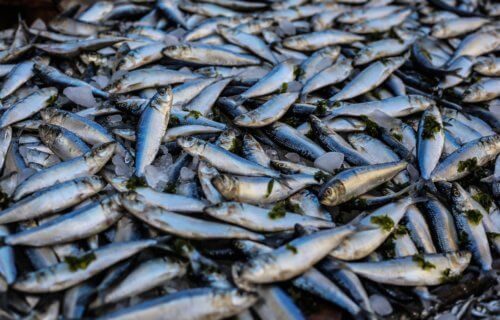EXETER, United Kingdom — Guinea worm disease, an awful parasitic condition that causes trauma and disability in poor regions such as Chad, Ethiopia, Mali, and South Sudan, is nearly extinct. In 2020, doctors only documented 27 cases in humans. It’s a major change from the 1980s, where millions contracted the debilitating parasite annually. According to a new study, however, the disease continues to linger due to dogs eating infected fish.
Both dogs and humans usually contract Guinea worm disease by ingesting water contaminated with fleas carrying parasitic larvae. Left untreated, the worms grow and mate within the human body. After a period of roughly 10 to 14 months, a three-foot-long worm usually “emerges” from either the carrier’s arms or legs, in order to shed its larvae back into water.
Thankfully, containment and eradication programs over the past few decades have proven incredibly effective. Today, Guinea worm disease is very close to becoming only the second human disease, after smallpox, that scientists have been able to eradicate from society.
Local fishermen bringing the disease to dogs
Unfortunately, the new study reveals that many domesticated dogs in certain areas are also carrying the parasite. Specifically, researchers report that in 2020, about 93 percent of all Guinea worms detected worldwide were located within dogs living in Chad, Central Africa.
Even worse, researchers from the University of Exeter have found a new pathway of disease transmission. Study authors say that when a dog eats an infected fish, their bodies maintain the parasite’s life cycle, ultimately meaning humans can still catch the disease from their pets.
The research team worked for a year in some of the most-affected villages along the River Chari in Chad to reach these conclusions. They tracked hundreds of dogs and assessed their diets using forensic stable isotope analysis of dog whiskers. Most of the fish eaten by infected pups come from humans fishing along the river and its lagoons.
“Dogs are now the key impediment to eradicating this dreadful human disease. Our work shows that fisheries, and the facilitation of dogs eating fish, are likely contributing to the persistence of Guinea worm in Chad,” says study leader Professor Robbie McDonald, of Exeter’s Environment and Sustainability Institute, in a university release.
“The challenge now is that this pathogen must be eliminated not only from people but also from animals. This is a clear example of where a ‘One Health’ approach to integrating health of people, animals and the environment is required to eradicate this debilitating human disease.”
The study appears in the journal Current Biology.
